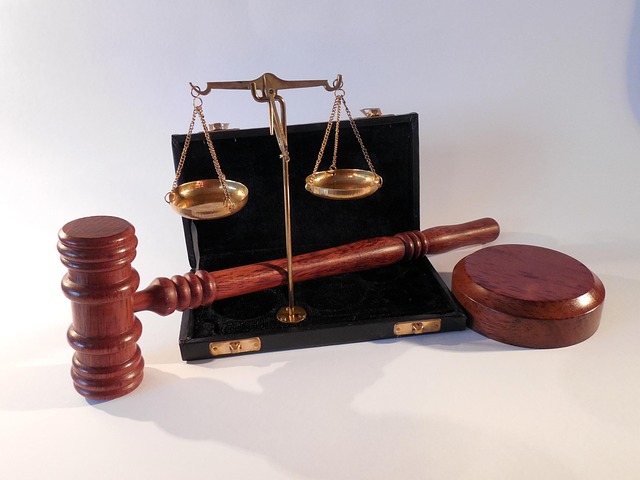The RF Securities Industry Regulation is a robust framework designed to protect investors, with key aspects including trading oversight, disclosure, and conflict management. Property boundary disputes, often caused by documentation errors or neighboring land use changes, pose significant risks to businesses in the financial sector. Specialized legal advice from experienced attorneys is crucial for resolving these disputes, ensuring regulatory compliance, and protecting intellectual property rights. As the regulatory landscape evolves due to technological advancements, seeking legal counsel on data governance and compliance best practices is vital for firms to stay ahead and avoid legal repercussions. Case studies of property boundary disputes offer valuable insights into successful regulatory practices and their real-world impacts.
“The RF Securities industry faces unique regulatory challenges, particularly with complex property boundary disputes. This article offers a comprehensive guide through the intricate web of regulations that shape this sector. We explore the impact of property boundaries on securities governance and delve into the critical role of legal advice in navigating these complexities. Through case studies, we showcase successful regulatory practices, highlighting their influence. Furthermore, we predict future trends, emphasizing the dynamic nature of securities industry regulation, especially concerning property dispute resolutions.”
- Understanding RF Securities Industry Regulation: An Overview
- Property Boundary Disputes: Implications for Securities Regulations
- The Role of Legal Advice in Navigating Regulatory Complexities
- Case Studies: Examining Successful Regulatory Practices and Their Impact
- Future Trends: Predicting Evolving Regulations in the Securities Industry
Understanding RF Securities Industry Regulation: An Overview

The RF Securities Industry Regulation is a complex web of laws and guidelines designed to maintain fairness, transparency, and stability in the financial markets. At its core, this regulation aims to protect investors by ensuring that securities firms operate ethically and responsibly. This involves meticulous oversight of trading activities, disclosure requirements, and conflict-of-interest management, among other aspects. Understanding these regulatory frameworks is crucial for both industry participants and investors, as it enables them to navigate the market with confidence, knowing their interests are safeguarded.
When disputes arise, such as property boundary conflicts within the securities industry, seeking legal advice becomes paramount. Skilled attorneys specializing in financial law can provide invaluable assistance in navigating these complex regulatory environments. They help clients understand their rights and obligations, offer strategic guidance on compliance matters, and represent them in case of investigations or even jury trials. Ultimately, this legal expertise can lead to successful challenging defense verdicts, ensuring a complete dismissal of all charges for those who have been wrongfully accused.
Property Boundary Disputes: Implications for Securities Regulations

Property Boundary disputes can have significant implications for securities regulations, particularly when involving corporate entities or individuals in the financial sector. These legal conflicts often arise due to ambiguities in property ownership documentation, neighboring land use changes, or historical errors in boundary marking. For clients navigating these complex issues, seeking specialized legal advice is crucial. Experienced attorneys can help resolve these disputes, ensuring compliance with regulatory requirements and, in some cases, achieving a complete dismissal of all charges.
The impact on securities regulations stems from the potential for such disputes to disrupt business operations, damage reputations, and even lead to legal liabilities. For corporate clients, maintaining clear boundaries is essential for protecting intellectual property rights, securing investments, and upholding ethical practices within the industry. Property Boundary disputes require meticulous documentation, thorough investigations, and strategic negotiations or litigations, all of which can be facilitated by professionals well-versed in both real estate law and securities regulations.
The Role of Legal Advice in Navigating Regulatory Complexities

In the intricate landscape of RF Securities Industry Regulation, legal advice serves as a guiding compass for navigating complex regulatory terrains. As the financial services sector continues to evolve, with new instruments and markets emerging, so too does the regulatory framework that governs them. This dynamic environment poses significant challenges for corporations and individuals alike, particularly in high-stakes cases involving property boundary disputes.
Lawyers specializing in securities regulations play a pivotal role in assisting clients through all stages of the investigative and enforcement process. They provide strategic counsel tailored to the unique needs of corporate and individual clients, ensuring compliance with ever-changing laws and regulatory guidelines. By leveraging their expertise, clients can mitigate risks, avoid costly missteps, and position themselves strategically within the regulatory framework. This proactive approach is especially crucial in resolving property boundary disputes that may have significant financial implications and reputational damage.
Case Studies: Examining Successful Regulatory Practices and Their Impact

In navigating the complex landscape of RF Securities Industry Regulation, case studies offer valuable insights into successful regulatory practices and their tangible impacts. By studying real-world scenarios, we can identify effective strategies for addressing challenges unique to this dynamic industry. For instance, examining how regulators have tackled property boundary disputes provides crucial legal advice, demonstrating the importance of clear, consistent guidelines in preventing and resolving conflicts related to financial assets and investments.
Moreover, these case studies highlight the interplay between white collar defense, philanthropic and political communities, and the prevention of white collar and economic crimes. Successful regulatory models not only enhance transparency and accountability but also foster a culture of integrity within the industry. This holistic approach ensures that regulatory practices are not just compliant but also contribute to the broader societal well-being, creating a more robust and trustworthy financial ecosystem.
Future Trends: Predicting Evolving Regulations in the Securities Industry

The securities industry is poised for significant regulatory shifts as technology continues to redefine global markets. Emerging trends suggest a heightened focus on digital security and data privacy, with regulators aiming to protect investors in an increasingly digital landscape. As more transactions occur online, the potential for cyberattacks and fraud increases, prompting authorities to strengthen oversight. This shift could lead to stricter rules regarding cybersecurity measures, data protection protocols, and transparency in algorithmic trading.
Predicting these evolving regulations is crucial for industry participants to avoid indictment in high-stakes cases and achieve extraordinary results. Staying ahead of the curve requires a proactive approach, including seeking legal advice on emerging best practices for data governance and compliance. By anticipating regulatory changes related to property boundary disputes in the digital age, firms can ensure their operations remain within the evolving legal framework, fostering a more robust and secure securities market.
The RF securities industry is undergoing a landscape shift due to evolving regulations, particularly in addressing property boundary disputes and leveraging legal advice. As seen through case studies, successful regulatory practices significantly impact market stability and investor confidence. Moving forward, staying ahead of future trends will require proactive engagement with legal counsel to navigate the complexities of these changing dynamics. By integrating best practices and embracing innovative solutions, the industry can foster a more robust, ethical, and resilient ecosystem.






